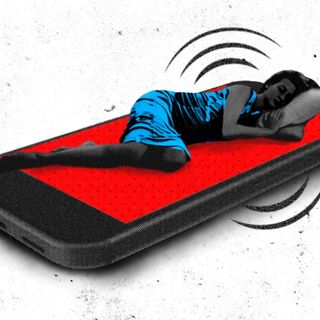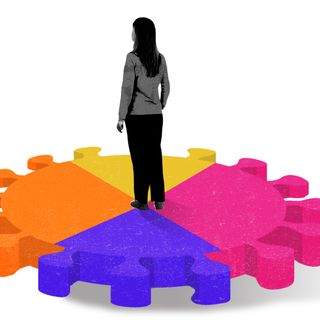What It’s Like to Live With explores the stories of people who see and experience every day a little differently.
Growing up, I had difficulty with basic subtraction and addition. I still do. Even at 29, dyscalculia impacts my everyday life.
I need a calculator for the most “basic” arithmetic; I need a calculator even to subtract 12 from 33, for instance. While I was in school, naturally, I struggled with mental maths a lot. But, somehow, until eleventh grade, I managed to breeze through — at times, I remember mugging up math problems to prevent having to make calculations during exams.
However, when I opted for science and maths after my tenth board, things started to get really bad. I was doing really well in every subject other than math and physics, actually. In those two, I was scoring in single digits. To fix that, I was soon attending six to seven tuitions, but it wasn’t helping. I was at a loss.
My heavily dipping grades led my parents to seek help from mental health professionals. I had to go through a series of tests, which included simple arithmetic, mental maths, counting on an abacus, and calculating finances. At the end of it, we were told I have dyscalculia.
I was 16, at the time. My diagnosis helped explain my struggles, but it didn’t come with access to resources that would help me navigate school with a learning disorder. There are no treatments. I had to figure out how to somehow pass my twelfth board.
After school, I steered to a legal career. It was huge relief — thankfully, there isn’t a lot of math that I am expected to do in law. Butt it’s not like dyscalculia doesn’t interfere with work life at all. For starters, I find keeping track of dates extremely challenging. Also, as an employment lawyer, I’m required to calculate severance packages, gratuity, and so on — excel sheets have been my savior, in this department.
Related on The Swaddle:
What It’s Like To Live With: Dyslexia
Outside of work, too, dyscalculia does make things arduous every now and then. I find it really difficult to make on-the-spot financial decisions — when paying by cash, I just can’t figure out how much I should get back from shopkeepers. Reading maps is also something I can’t do — this can make navigation rather challenging. And when it comes to handling my finances, I have to be completely dependent on my partner.
Having said that, I’ve accepted dyscalculia as a part of my life now. It wasn’t easy to come to terms with my diagnosis, at first — it would frustrate me when I struggled with things my friends seemed to seamlessly figure out.
Even though I’m used to my neurodivergence now, and don’t view it in a negative light, I’m hesitant to be completely open about it to everyone in my life. There’s, overall, a very poor understanding of dyscalculia among the general population. There’s very little awareness of it being a disability; my folks think my brain isn’t wired for maths and physics, but don’t see it as a disability that impacts a large part of my life.
Often, the reaction I’m met with after mentioning my disability to people is, “Oh yeah, even I hate maths! I used to struggle with the subject too.” What many people don’t get is that the challenge math presents for me, isn’t based on a hatred of the subject. I’ve noticed that people tend to believe some of us are just a little weak in math, but can easily be overcome with enough practice. It’s only the people, who go through hell and keep trying without much success, that get what it’s like to live with dyscalculia.
I’m scared to reveal my disability to my boss, though. There’s, of course, stigma around learning disabilities, and I don’t want to be seen as “lesser than” despite being a capable lawyer.
I was never given any accommodations, and to date, I just somehow have to manage.
This interview has been condensed and edited for clarity. As told to Devrupa Rakshit.




